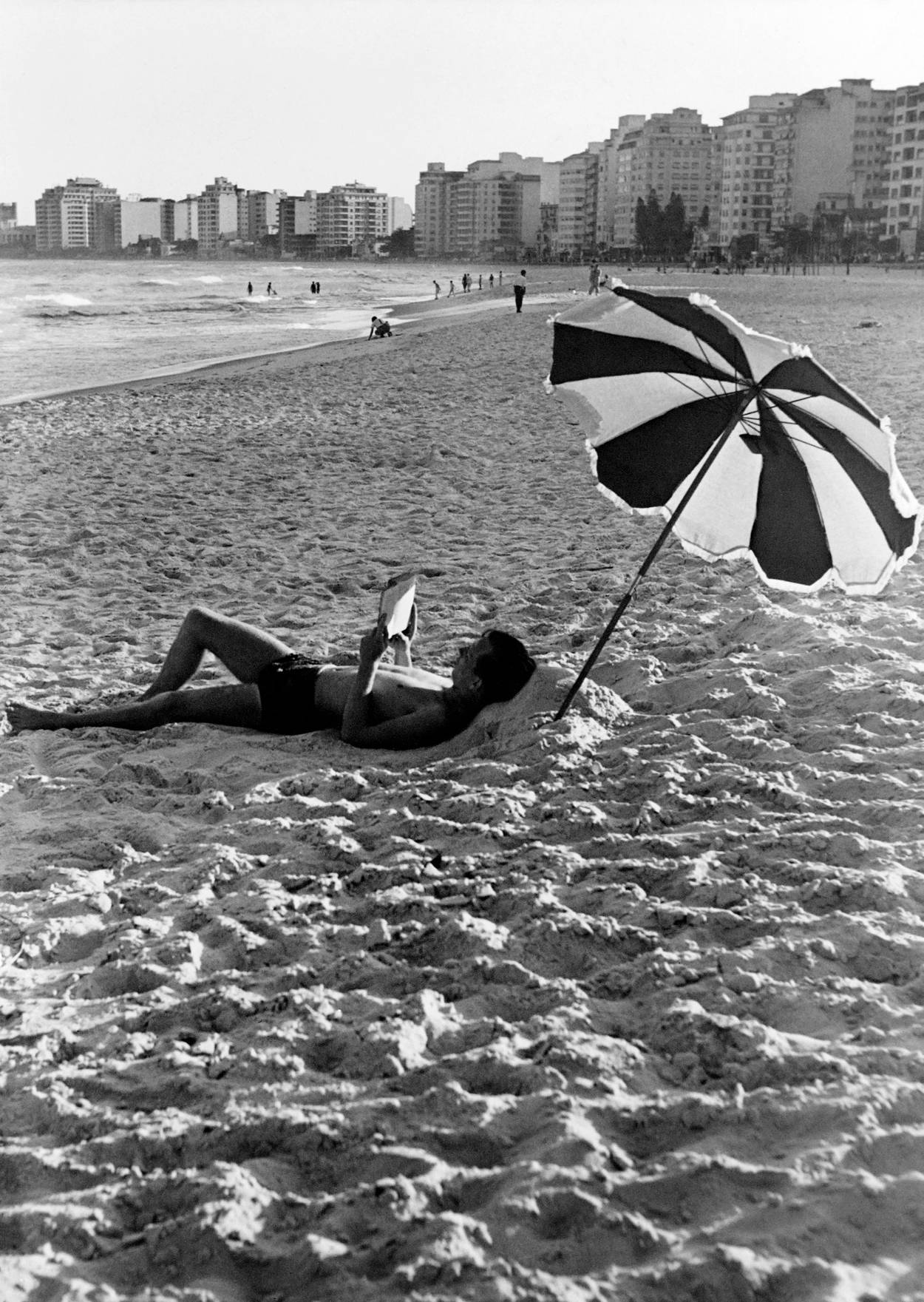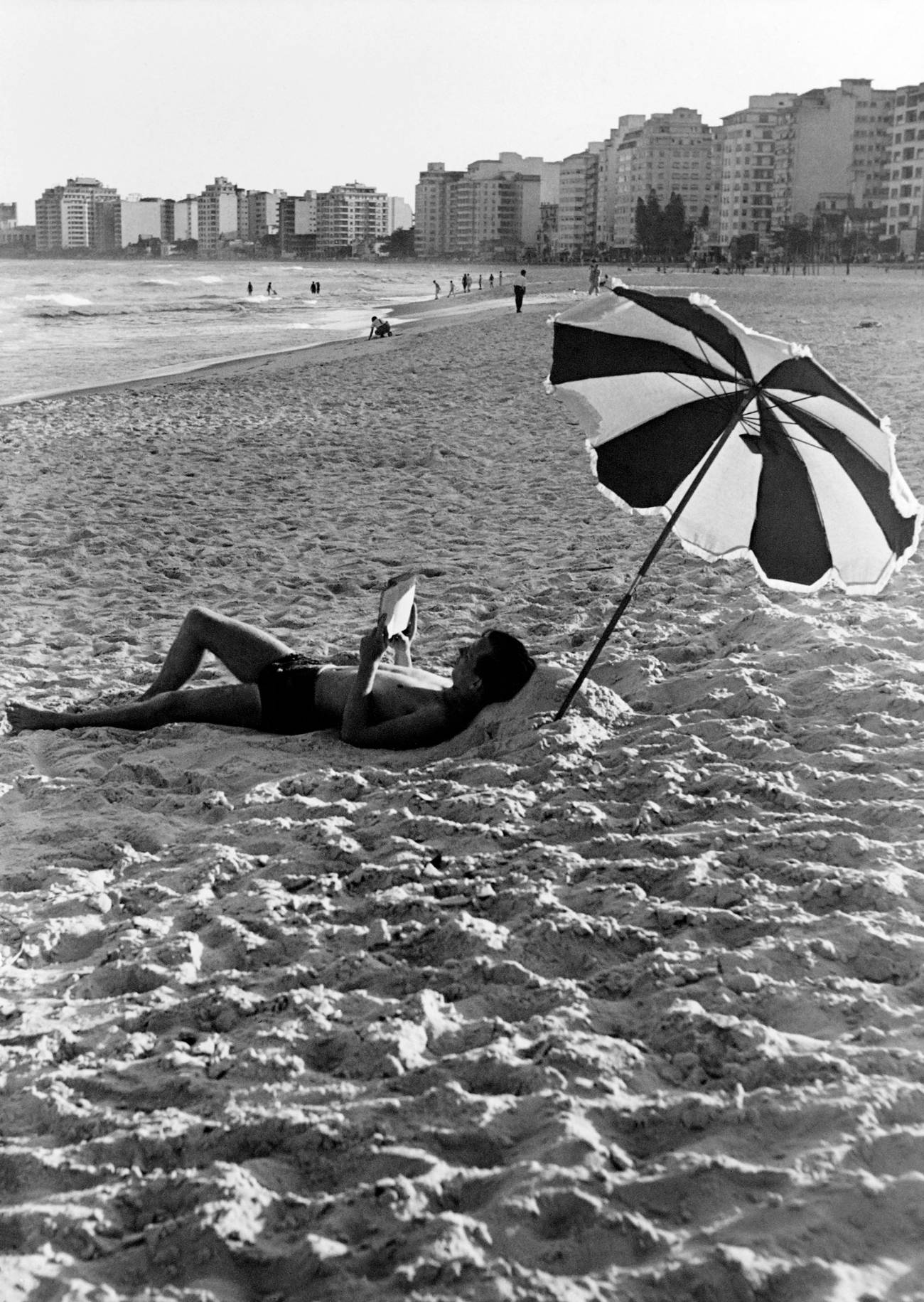August Beach Reads
Don’t let your iPhones overheat in the sun. Read a book instead.

Jean Manzon/AFP via Getty Image

Jean Manzon/AFP via Getty Image

Jean Manzon/AFP via Getty Image

Jean Manzon/AFP via Getty Image
Saul Bellow, Henderson the Rain King
How does Saul Bellow’s 1959 novel—part satire, part fable—about an all-American goy losing and finding himself in a mostly magical Africa hold up? Bellow’s tribal princes, queens, and advisers would not be out of place in Ta-Nehisi Coates’ Wakanda, nor, for that matter, at Leo Strauss’ University of Chicago seminars on Machiavelli and humanism. Crucially, for Bellow, the path to full humanity leads through a series of vivid, unsparing encounters with various animals: cows, frogs, lions, pigs. Henderson’s rambling story of an old carnival bear and a roller coaster—possibly the truest details in the novel apart from Bellow’s descriptions of flying over Egypt—crowns the book with a devastating coda.
Henry Bean, The Nenoquich
Published in 1982 under a different title, now rereleased by McNally Editions as part of our great wave of midlist redemptions, the scriptwriter Henry Bean’s first and only novel, set in the post-1968 milieu of disillusioned ex-student radicals of Berkeley, occupies an interesting historical place after the young Jewish men and sex novels of Philip Roth and Leonard Michaels but before the old Jewish man and sex novels of later Roth. A friend referred to it as a consummate novel of “Jewish male sexual depravity,” but the depravity on display—a seduction both cruel and tender of a married woman in her 20s by a young man in his 20s—struck me less as particularly “Jewish” than specifically “revolutionary,” and belongs to the European and bourgeois tradition of the novel itself.
In many ways, while looking back to a tradition inaugurated by Goethe’s Werther, Bean composed a novel that anticipated a problem that would soon vex Gen X—the idea that allowing yourself to admit love for anyone or anything is itself a kind of selling out to capitalism and the bourgeoisie. The ending is a sign that the author was always destined for Hollywood.
Nell Zink, Avalon
Nell Zink’s latest novel, Avalon, her shortest and tightest so far, is a romantic book about the dialectic of enlightenment. If that sounds Germanically ponderous or just kind of theoretically abstract and out there, don’t worry: Avalon also happens to be one of the best-paced and most note-perfect, sentence-for-sentence novels written in many years, and also one of the funniest. It has the flash of a fairy tale, the absurd zing of an early Simpsons episode, and the joy of Mozart.
A tale of a young California girl’s emancipation (from poverty and the ruthless exploitation and manipulation of her step-family who run a tree farm and dabble in organized crime), unusually for the contemporary novel, liberation and self-knowledge both come about by her falling in love with a dorky older boy who likes to quote German philosophy. A diversion in every possible sense, and the best example of what artistic freedom can sound like on the page without slipping into self-indulgence, Avalon is a straight shot distillation of one of the most interesting minds in contemporary fiction.
Elias Canetti, The Voices of Marrakesh
Canetti’s short, intriguing account of a trip to Morocco, first published in 1967, is mysterious and parablelike, and focuses in part on Marrakesh’s Jewish quarter.
Patricia Highsmith, The Tremor of Forgery
Highsmith is haunting and suspenseful as ever in this tale, set during the Six-Day War, about a novelist in Tunisia who stumbles on a murder. Newly reissued in a Library of America volume (Crime Novels of the 1960s).
Phillip Lopate, Totally, Tenderly, Tragically: Essays and Criticism from a Lifelong Love Affair with the Movies
Whether he’s celebrating Jerry Lewis, mulling over the great Japanese directors Naruse and Mizoguchi, or remembering a disastrous Fassbinder movie date, Lopate is personal, passionate, and acute.
Ferdinand von Schirach, Crime and Guilt
An anonymous lawyer narrates these short stories, which describe horrifying crimes with surprising consequences. Elegantly written and shocking—a perfect beach read.
Cormac McCarthy, Stella Maris
This compact and eerie dialogue between a young woman—a Jewish math genius, no less—and her psychiatrist was McCarthy’s final masterpiece.
Norman Mailer, The Executioner’s Song
A doorstop, but don’t be intimidated by the length—I blew through most of the book’s 1,000-plus pages during a single week at the beach last summer. A “nonfiction novel” about the life and trial of the murderer Gary Gilmore, Executioner’s Song is Mailer’s definitive statement on his major themes—sex, violence, and America—and a reminder of what we used to mean when we talked about a “great American novel.”
D.H. Lawrence, Studies in Classic American Literature
The title sounds academic. The book is not. In his short sketches of Benjamin Franklin, Herman Melville, James Fenimore Cooper, and other American greats, Lawrence writes with the force and clarity of Orwell at his best, albeit with a moderately unhinged aggression that I, for one, find far more invigorating than Orwell’s earnest socialism. Dark, weird, funny, and oddly charming.
Shelby Foote, The Civil War: A Narrative, Volume I: From Fort Sumter to Perryville
Lincoln called in his second inaugural for Americans to proceed “with malice toward none” and “charity for all,” but in recent years, as race has become the central theme of official American history, the tendency has been to assimilate the Civil War into a self-serving prehistory of the present, pitting the forces of light against a darkness that is still with us today. Foote, perhaps the greatest literary Jewish Southerner, was a novelist before he was a historian. Here, he succeeds in humanizing the men on both sides of America’s bloodiest and most tragic war.
Azar Gat, War in Human Civilization
Another doorstop, but that’s why you’re at the beach, right? Gat, an Israeli military historian, sets himself the modest task of seeking the origin and cause of violent conflict in human history. Relying primarily on evolutionary science, but also on a vast array of research culled from diverse social science disciplines, he succeeds in cutting through an overwhelming amount of popular horseshit. War may not be inevitable in every case, but it is impossible to read this book and walk away still holding onto any Rousseau-ite illusions about our essentially good and peaceful nature.
Tom Wolfe, A Man in Full
A No. 1 bestseller at the time of its release in 1998, Wolfe’s second novel, about a real estate mogul in Atlanta, has not enjoyed the same afterlife as The Bonfire of the Vanities, which to this day exists as a sort of skeleton key for understanding the great American political tradition of tawdry race controversies. That’s unfair. Updike famously called A Man in Full “entertainment, not literature,” but there’s nothing wrong with entertainment as masterfully executed as this. Whites vs. Blacks, crackers vs. gentry, WASPs vs. Jews, men vs. women, a man vs. his nagging in-laws—in Wolfe’s hands, the subterranean rivalries, buried status resentments, and explosive blood feuds of late-20th-century America become the stuff of high comedy.
Marco Roth is Tablet’s Critic at Large.
David Mikics is the author, most recently, of Stanley Kubrick (Yale Jewish Lives). He lives in Brooklyn and Houston, where he is John and Rebecca Moores Professor of English at the University of Houston.
Park MacDougald is senior writer of The Scroll, Tablet’s daily afternoon newsletter.